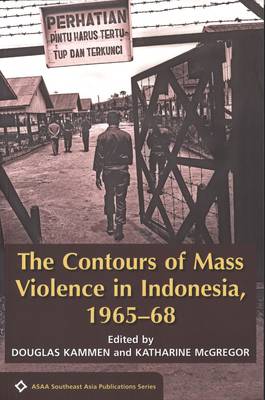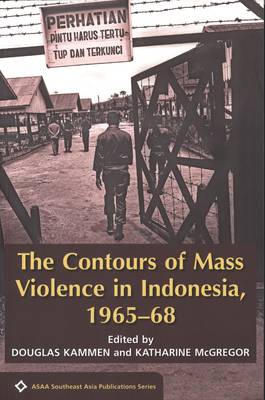
- Retrait gratuit dans votre magasin Club
- 7.000.000 titres dans notre catalogue
- Payer en toute sécurité
- Toujours un magasin près de chez vous
- Retrait gratuit dans votre magasin Club
- 7.000.0000 titres dans notre catalogue
- Payer en toute sécurité
- Toujours un magasin près de chez vous
The Contours of Mass Violence in Indonesia, 1965-68
47,45 €
+ 94 points
Description
The violence directed against the political left in Indonesia from 1965 until 1968 has been the subject of intense speculation. The large number of deaths and brutal interrogations, as well as rape, torture, short- and long-term detention and on-going discrimination inflicted on hundreds of thousands of people, makes this a compelling topic. However, political sensitivities within Indonesia and a dearth of evidence made serious research on the topic extremely difficult under the New Order regime.
The Contours of Mass Violence in Indonesia presents case studies from diverse locations throughout the Indonesian archipelago. The accounts revolve around the impact and interpretations of the September 30th Movement and its aftermath; the roles of military and civilian groups in fomenting and perpetrating violence; short- and long-term detention; and the legacies of the assault on the political Left. Although events unfolded differently in various parts of the country, the violence amounted to a counter-revolution intended to curtail the mass mobilization and popular participation unleashed by the national revolution some twenty years earlier. The goal was to destroy the social bases of President Sukarno's left-leaning Guided Democracy, and to establish a military regime that was authoritarian and pro-Western. Students of Indonesia will learn much from the accounts in this volume, but the discussion will also benefit scholars concerned with the dynamics of mass violence, the Cold War, regime change and counter-revolution.Spécifications
Parties prenantes
- Editeur:
Contenu
- Nombre de pages :
- 320
- Langue:
- Anglais
- Collection :
Caractéristiques
- EAN:
- 9780824837433
- Date de parution :
- 30-09-12
- Format:
- Livre broché
- Format numérique:
- Trade paperback (VS)
- Dimensions :
- 150 mm x 226 mm
- Poids :
- 453 g

Les avis
Nous publions uniquement les avis qui respectent les conditions requises. Consultez nos conditions pour les avis.





